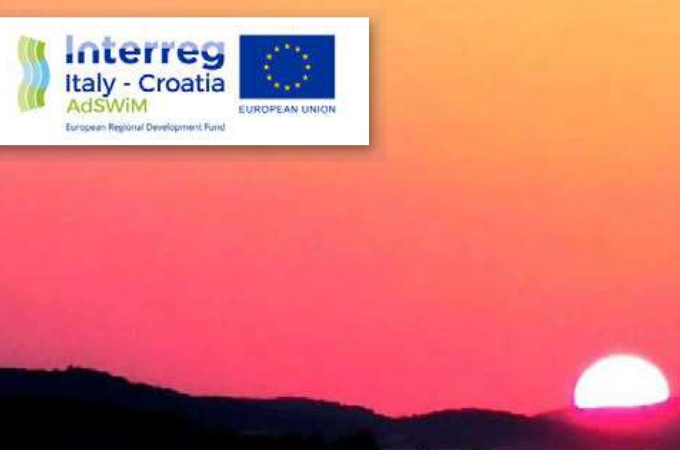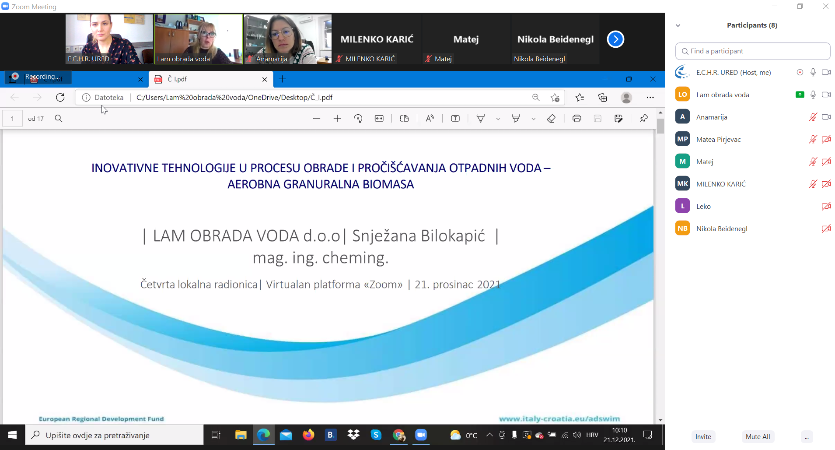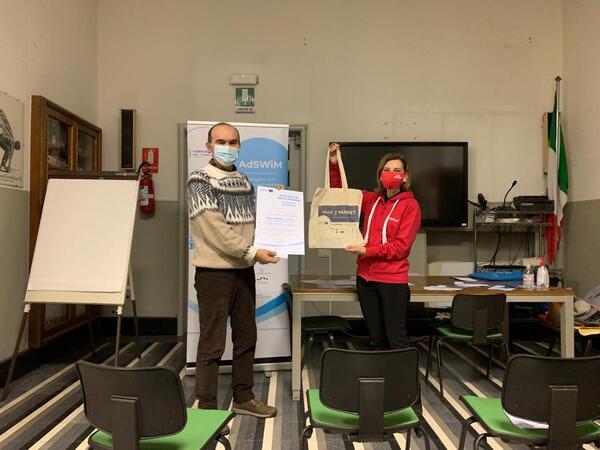Adswim is a European cross-border cooperation project, coordinated by the University of Udine - Department of Environmental Agro-Food and Animals-Di4A Sciences and includes twelve Italian and Croatian partners who work
"The project work started last year, with a survey of the existing chemical and microbiological control data to outline a starting point of reference. The experimentation involves many diversified activities but is structured into 3 types of interventions which can be schematized into experimental activities, training activities, dissemination and consolidation of results and harmonization of cross-border protocols ", explains Sabina Susmel, researcher in analytical chemistry of the chemistry section of the Department of Environmental Agro-Food and Animal Sciences of the University of Udine.
The motto chosen for the 2020 edition of the World Environment Day is "It's time for Nature", to remind us that the biodiversity crisis is not only an urgent but also an existential concern. Biodiversity is "the basis that sustains all life on land and underwater" and concerns "every aspect of human health, providing clean air and water, nutritious foods, scientific knowledge and sources of medicine, natural resistance to diseases and the mitigation of climate changes. The modification or removal of an element of this network affects the entire system of life and can have negative consequences for everyone", says the official UN statement that proclaimed the institution of the United Nations Program for the environment as early as 1972. The emergency that we are still experiencing has shown how fragile our system is and how much environmental problems are global.
"The emergency caused slowdowns in experimental activities that have been gradually recovering both in Udine and at the other institutes and bodies involved along the Adriatic," specified Sabina. "The picture in which we move is reassuring, the waters of the Adriatic on both the Italian and Croatian sides are mainly classified as waters of excellent or good quality (95-96%), critical issues remain in some heavily populated areas or in proximity of river estuaries. The effort of this project is to participate in maintaining the current quality characteristics of marine waters and to try to improve them by working together with purifiers, to identify new treatment systems, analysis and possibly new parameters or indicators for carrying out checks (chemical- microbiological) as early diagnosis. "
Researchers and experts are in the process of developing a rapid and innovative monitoring system that uses electrochemical and optical biosensors to measure the microbiological pollution indicators that determine the quality of coastal bathing water. We are also evaluating innovative disinfection or photo-disinfection systems in the treatment of urban waste water and we are committed to checking marine water at discharges to verify the presence of emerging pathogens that could alter the quality of bathing water.
With this in mind, the Municipality of Udine in collaboration with the entire partnership has developed a video infographic that has been included on the INDIRE website in the distance learning program, thanks also to the collaboration of the partner, the National Institute of Oceanography and Experimental Geophysics of Trieste. In addition, an educational module for elementary school teachers was developed in collaboration with ARPA FVG, free educational workshops for elementary schools at the Natural History Museum of Udine and guided visits to the depuration plant with the collaboration of CAFC S.p.A. The activities will be proposed to children and schools for the 2020/2021 school year. Keep following us!



